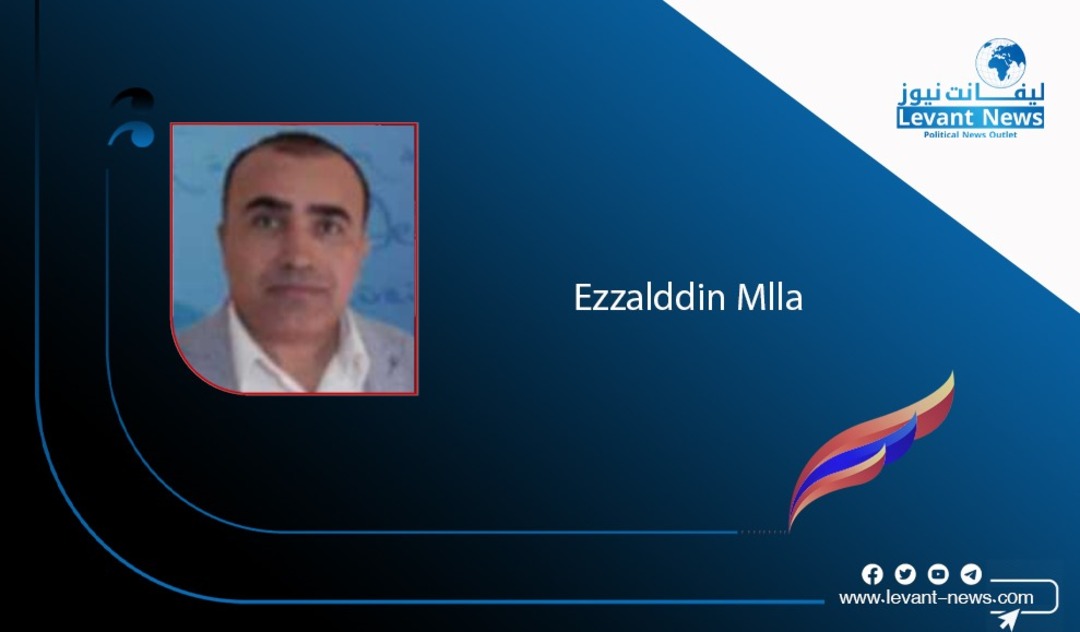-
Alperzani and Lessons of Statehood for the Kurds in Western Kurdistan

When headlines clash and the compass is lost amid the chaos of interests, Kurdish awareness turns to its ancient wisdom—toward the rock that never compromised with the wind but faced it with the dignity of silence. During times of revolution and resistance, the words of the great Barzani were not limited to the gun; they extended to messages, initiatives, and open doors for anyone willing to listen to the voice of reason. He did not distinguish between an opponent or a friend as long as dialogue could serve the Kurdish cause and push it one step closer to the horizon. The legacy that Barzani scripted in the most bloody moments was not merely military tactic or political flattery; it was strategic awareness of the importance of unity and the necessity of prioritizing the common goal over petty differences.
From this heritage, the compass must be recovered today—not only because the stage demands it but because history mandates it and opportunity compels it. When the Kurdish voice in Western Kurdistan is fragmented, and positions diverge into missions and small projects, the greater meaning of Kurdish struggle is lost, and the historic right is reduced to a negotiable and trivial file. It is time to revive the spirit of that dialogue that transcended hostility, and that wisdom capable of transforming diversity into a source of strength—not a gateway to division.
This approach has not been transient in time nor limited to the geography of South Kurdistan; it left its mark on the collective Kurdish consciousness and became a model to emulate in political work. So how can we, today, in a pivotal moment in the history of Syrian Kurds—an era not just questioning identity and rights but also fate and survival—stand idly by while fragmentation persists? How can we remain passive when we know that what unites us is far greater than what divides us? Our conflict is not with each other but with a long-standing system of repression that has robbed us of land, history, language, and future.
This paradox, worth stopping at, is not a minor detail in Kurdish history but the cornerstone of the political awareness that must govern the behavior of Kurdish forces in the new Syria. Differences in methods should not lead to fragmentation as long as the goal remains clear: Kurdish rights as partners in the homeland, guaranteed by a constitutional framework within a modern civil state that respects pluralism and human dignity. We cannot afford to repeat the tragedies of history when disagreement turns into internal conflicts that weaken us while others advance toward dominance and influence.
Today, in Damascus, no one awaits a delegation from a party or a representative of a faction more than others; instead, they look forward to a unified Kurdish national delegation that embodies the will of the Kurdish people beyond narrow party calculations. This is not merely a political desire from the center, but a historical necessity dictated by the crucial moment Syria is living. The multiplicity of Kurdish delegations and the clash of partial projects have not only weakened the Kurdish voice but also confused our Syrian partners from other components, increasing external interventions aimed at dismantling the Syrian Kurdish scene and undermining its negotiating position. Division has become a tool in the hands of opponents—an invisible weapon used against us without a shot fired, and with our own hands.
Foreign influences, throughout modern history, have played a covert role in deepening the divide among Kurdish forces—not only in Syria but across all four parts of Kurdistan. Regional and international policies have often fueled internal conflicts, sowed doubts, and distorted intentions. Therefore, unity around the higher interests of the Kurdish people and adherence to the strategic, overarching goal is the unbreakable wall and the most effective weapon against plans of dismantling, marginalization, and assimilation. Only a collective Kurdish vision, rooted in the shared national identity, can deter chaos and ensure the survival of a people who have sacrificed everything to gain their freedom and dignity.
In an era where geography has turned into a screen and the world into a small village, isolation is no longer an option, nor is cutting ties a wise stance. Dialogue with neighbors and foes alike is no longer diplomatic luxury but a political necessity—preferably under a single umbrella: the interests of our people and homeland. Being right is no longer enough; we must be influential, active, and present where policies are shaped, constitutions are written, and equations are formulated.
The closer the Kurds come to forming a comprehensive alliance that includes all the forces that have struggled and sacrificed for the same goal, the closer we are to reducing distances and increasing influence. Effective political action is not measured by guns or slogans but by the ability to build a historic bloc capable of negotiation, pressure, and alliance in the name of the people—not in the name of factions, offices, or petty interests. This bloc is not a fantasy or wishful thinking but a realistic possibility if wills are liberated from factionalism, wisdom overcomes stubbornness, and history is invoked not as a burden but as a roadmap.
By `Azaddin Mella
Tags
You May Also Like
Popular Posts
Caricature
opinion
Report
ads
Newsletter
Subscribe to our mailing list to get the new updates!





















